Palmetto Bluff Real Estate Company Sales Office
Office Hours
Monday-Friday 9am - 5pm
Saturday 9am - 4pm
Sunday 12 - 4pm
Saturday 9am - 4pm
Sunday 12 - 4pm
The Palmetto Bluff Conservancy began studying bats in 2015 and has established Palmetto Bluff as a long-term bat research and monitoring site. We attempt to net bats year-round and divide our netting effort into seasonal netting “sessions,” with each session having specific objectives. The fall 2021 session ended in late October and, while it was less successful than usual, we had a few exciting captures.
We had two major goals for netting this fall. This first was to continue monitoring bat abundance and diversity throughout the year. The second was to target male Seminole bats so we could track them to their roosts. Last month, you read about the research Sam Holst, Conservancy research fellow, is conducting on the roosting habits of Seminole bats in the summer. We are directing a similar study on the differences in the roosting habits of male Seminole bats between summer and autumn. This study began in the fall of 2020 and this is the final year of the project.

With autumn comes earlier sunsets and lower temperatures. We usually see a more rapid decrease in temperature throughout the night during fall and spring versus summer and winter. This more rapid temperature change can affect when bats are foraging. Throughout the fall netting session, we open our nets earlier on each subsequent night, following the shift in sunset and the resulting earlier emergence of bats from their roosts.
Our fall 2021 session was not as productive as spring and summer of this year. That was to be expected, as we typically have a lower capture success rate in the fall than spring and summer. Even so, this year we caught fewer bats during the fall session than in previous years. Our fall 2021 netting effort consisted of 12 nights from September 23 – October 25. Of those 12 nights, we had five where we did not catch any bats. This is a higher number of nights with no captures than usual, but we were netting sites that we do not normally net in an attempt to survey a larger area of Palmetto Bluff.
We captured 12 bats of three different species, including six Seminole, five tri-colored, and one northern yellow. We averaged capturing one bat per night in the fall, compared to 9 bats per night in the summer, and 4.5 bats per night in the spring. This was the first session of the year where we did not recapture bats from previous years.
We captured and tracked three adult male Seminole bats this fall, which, when added to the five we caught last fall, brings the total for our study to eight. We were hoping to catch five more adult males this year, but the bats did not comply. Once we caught the Seminoles, we secured a transmitter to their back, released them, and then tracked them to their roost for up to seven consecutive days. We are trying to determine if there are differences in the kinds of trees used by adult male Seminoles between the summer and the fall. This is the project’s final year, and we would like to catch four more adult males during summer 2022. Hopefully, our bats will cooperate!
The northern yellow bat we captured this fall marks the third for the year and the second female in 2021! This is particularly exciting because, prior to this year, we had not caught a female northern yellow since 2015. During 2018 and 2019, years when Clemson graduate student Kyle Shute was specifically targeting northern yellows, we only caught males (you can read his recently published study here). The second female yellow was the last bat of the year, so at least we ended the season on an exciting note!
While the fall 2021 session was somewhat disappointing, we were still able to add bats to our dataset. As the temperatures continue to drop, bat activity dwindles. We attempt to net bats year-round at Palmetto Bluff, but there are cold winter nights when our bats are not out foraging. What are our coastal bats doing during the winter? Why don’t they forage on cold nights? You’ll have to wait until next month’s post to find out!
Want to learn more about Sam and Lydia’s important work studying bats at Palmetto Bluff? Explore the Dusk to Dawn series, covering everything from common myths and urban legends to threats facing our winged friends. Learn more.
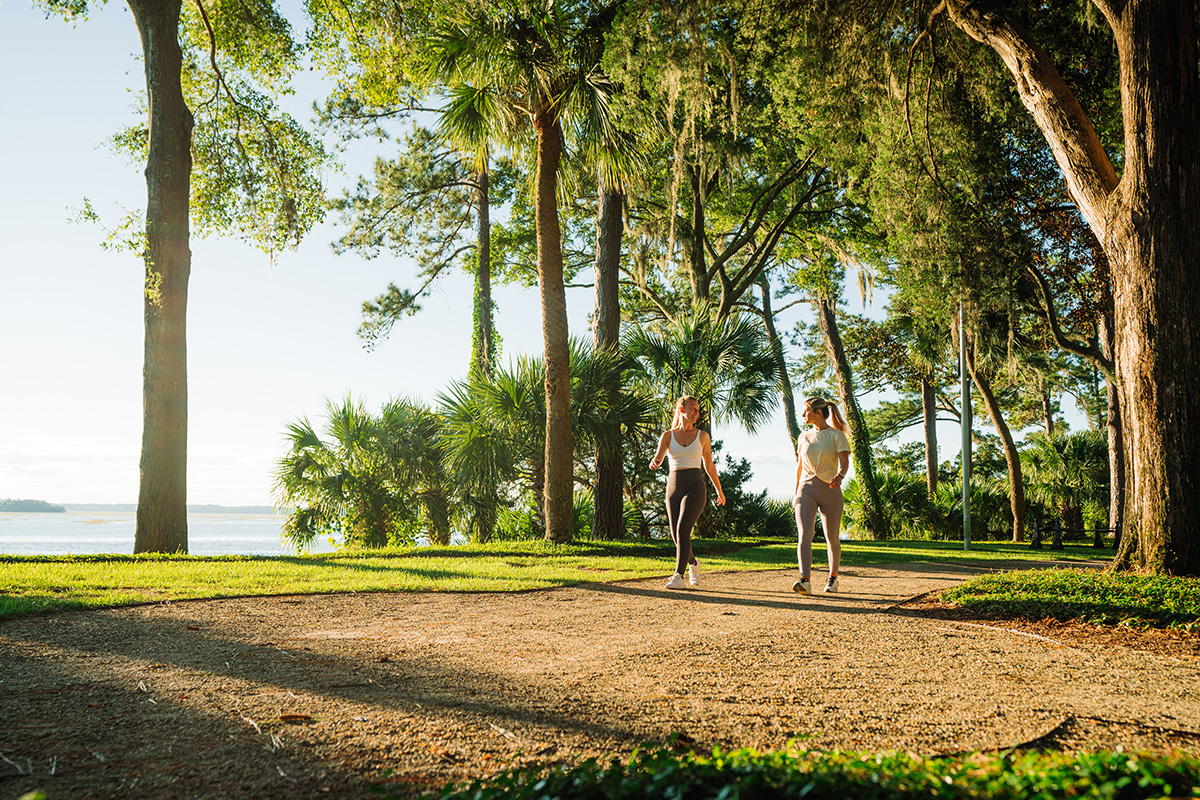
Before you let your New Year’s resolutions quietly fade, remember this: there are still eleven months ahead. Plenty of time. Plenty of possibilities. This year offers a different approach—one inspired by connection and support. At Palmetto Bluff, you’re sur...
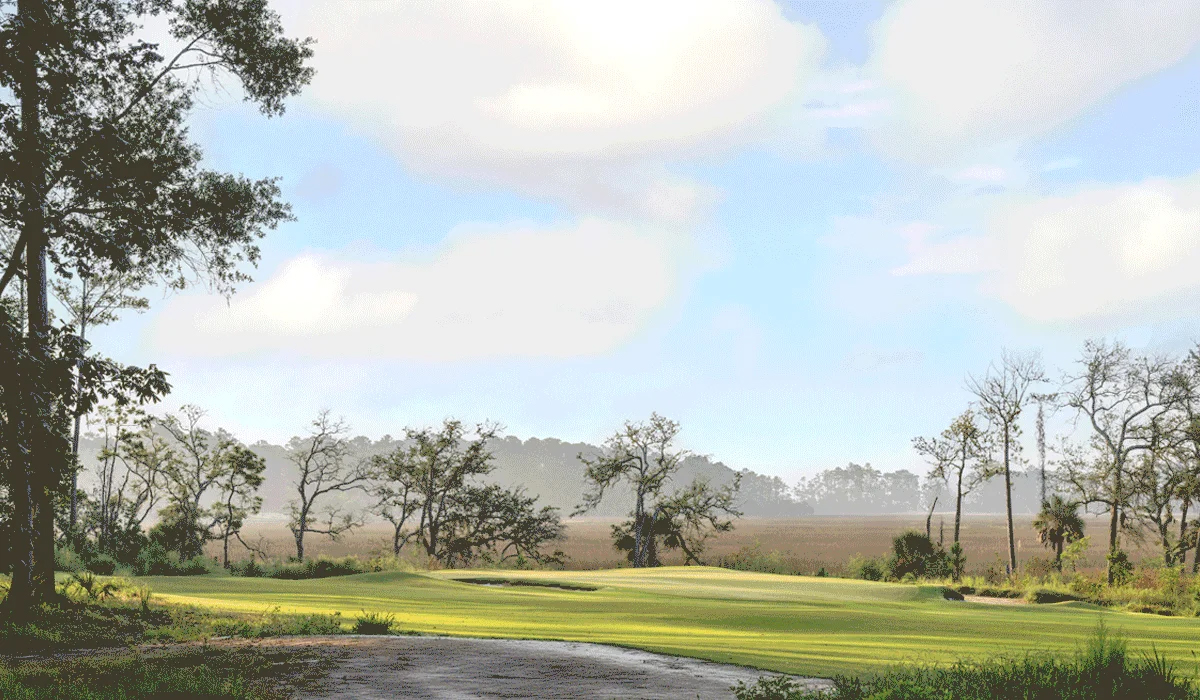
The newest golf experience at Palmetto Bluff is already drawing rave reviews. As the third pillar of golf experience at Palmetto Bluff, Anson Point brings with it a certain lofty set of expectations. After all, it’s hard to follow something like May River G...
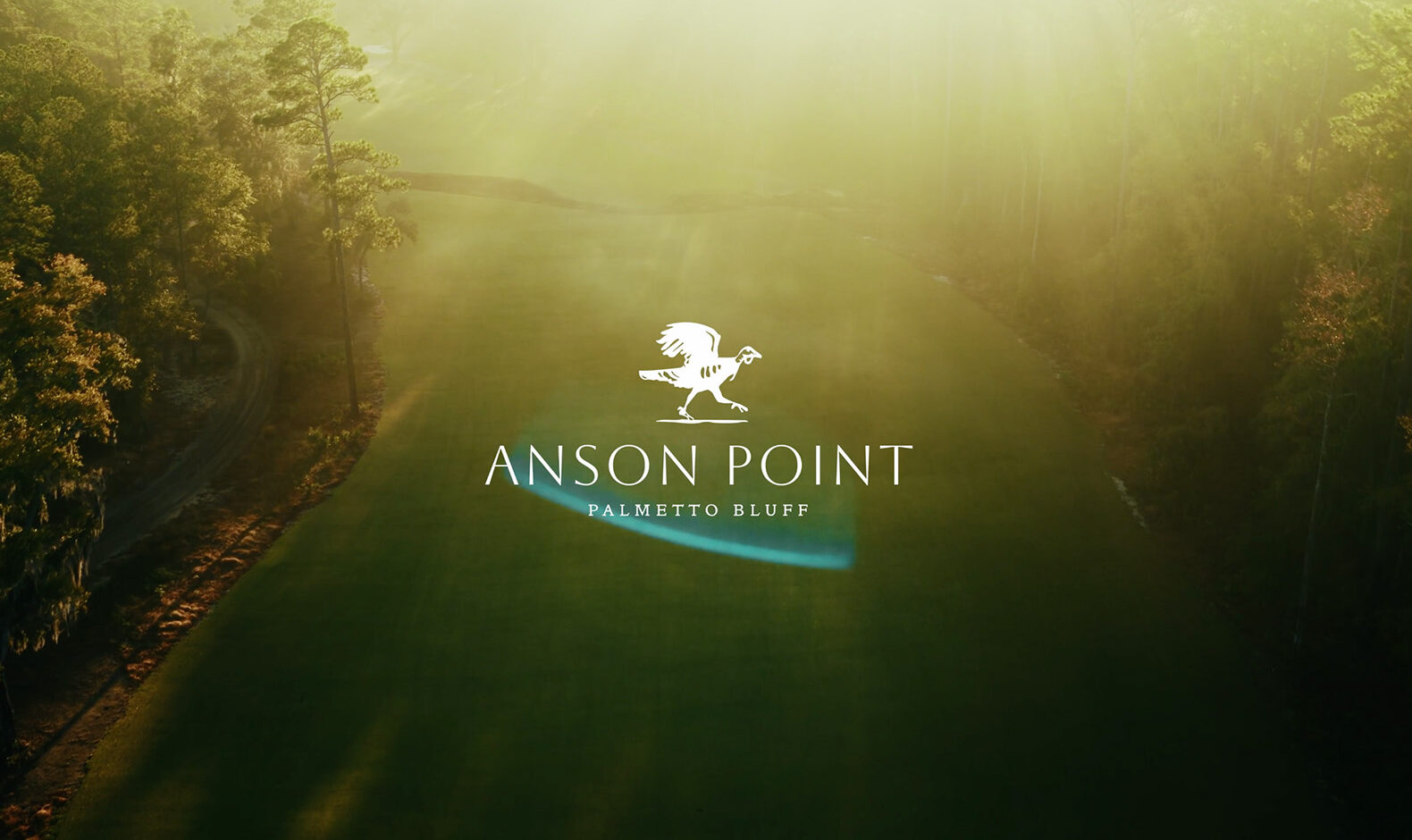
“It's the thrill of being involved in the creation, and it’s the gratification of watching that creation evolve in the manner which you’d hoped”.Bill Coore, Coore & Crenshaw Golf Course Architectshttps://vimeo.com/1155713833?share=copy&fl=sv&fe=c...
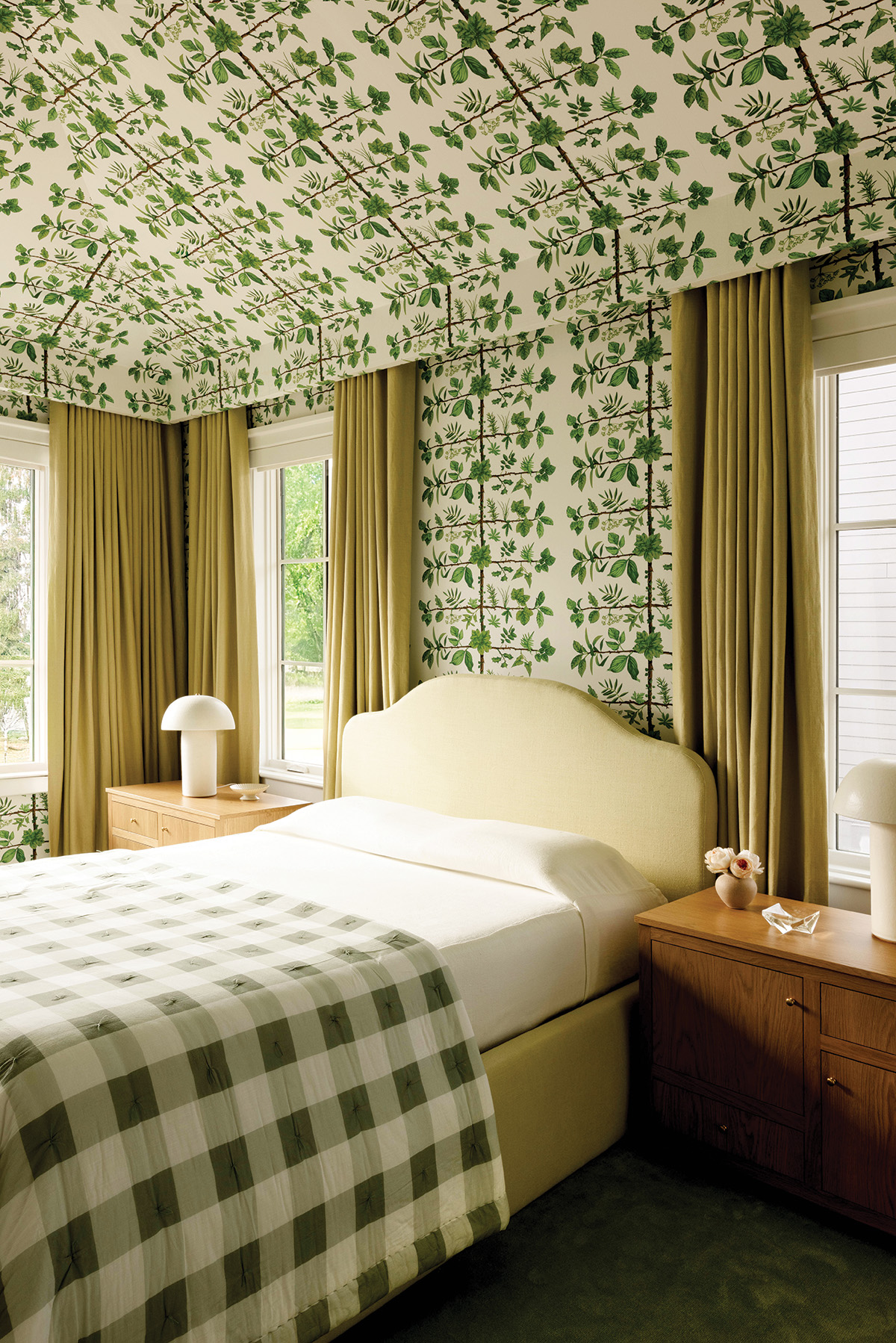
From punchy pastels to saturated jewel tones, color is breaking free of its neutral confines. In these artful Lowcountry homes, design becomes a joyful expression of personality and place.Story by Barry Kaufman / Photographs by Kelli Boyd and Nicole CohenInter...
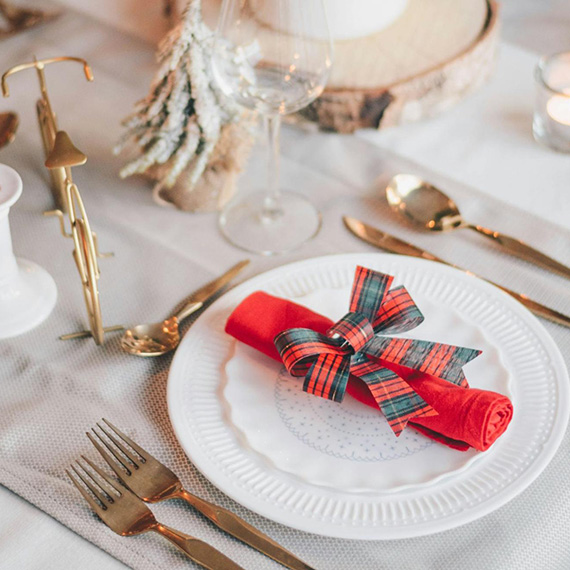
Warm, fragrant, and deeply comforting, Chef Beth’s Southern Sausage & Sage Stuffing is a holiday classic that brings together rich pork sausage, fresh herbs, and toasted bread for the ultimate savory side dish. Studded with green apples and aromatic vegeta...
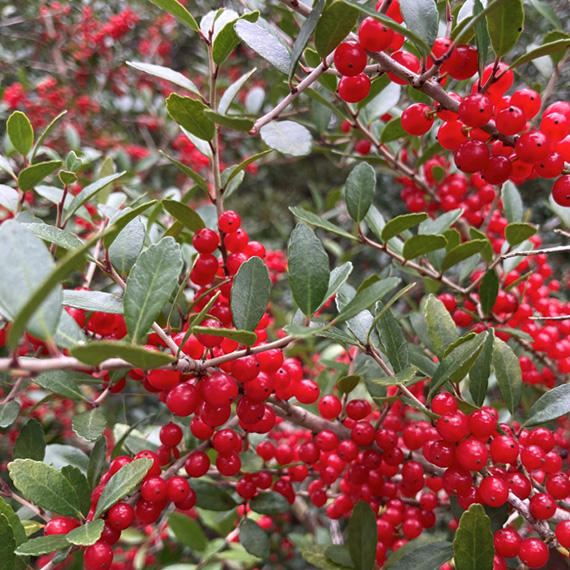
As December settles over Palmetto Bluff, it brings softer light, cooler mornings, and the natural beauty of native evergreens and winter berries that define the Lowcountry landscape. Palmetto Bluff Conservancy’s Education and Outreach Manager, Aaron Palmieri, ...

In 2025, Palmetto Bluff welcomed new neighbors and old friends, groundbreakings, and long-awaited openings. From inspired Club gatherings and elevated programming to the creation of our latest golf course, the year was defined by connection and excitement for ...
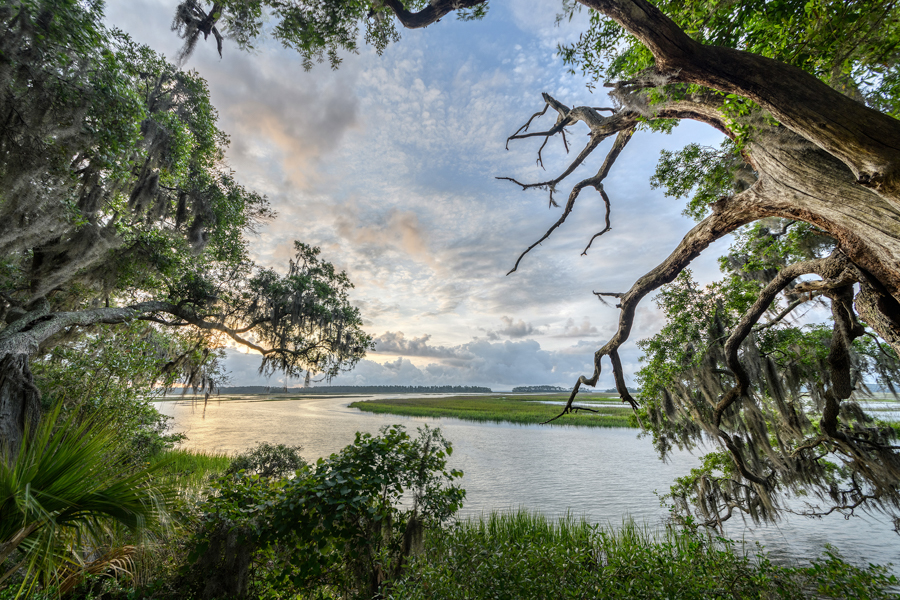
There is something serene about waking up to shimmering water, the stillness of the woods, or the sweep of marsh and sky right outside your window. Even without stepping outside, science shows that simply seeing nature from home can meaningfully improve mental...
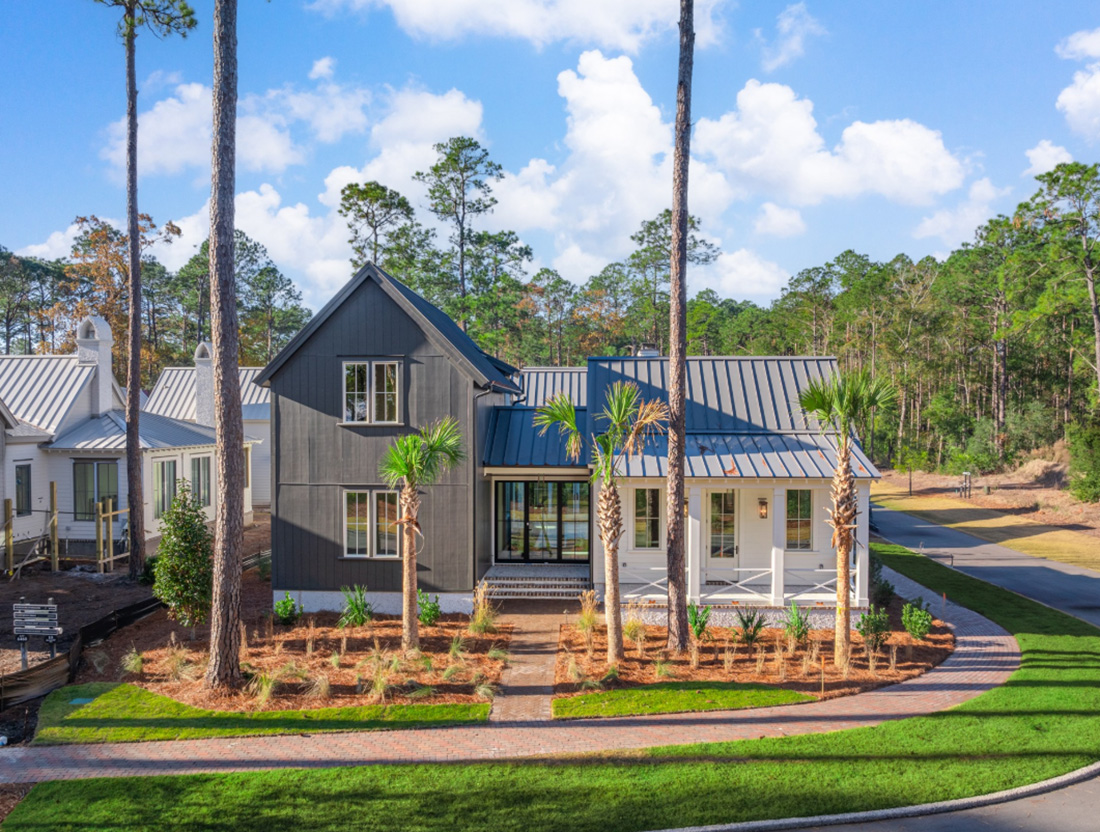
The Ultimate Choice: Building vs Buying a Home in Palmetto Bluff For those searching for Palmetto Bluff homes for sale, this common question often arises: Should you choose an existing residence, or embrace the opportunity to build your own? While a complet...

A Complete Guide to South Carolina Winter at Palmetto Bluff South Carolina's winter is unlike any other on the East Coast. While many travelers search for “South Carolina winter” expecting cooler temperatures and limited outdoor options, the Lowcountry revea...
We do not attempt to independently verify the currency, completeness, accuracy or authenticity of the data contained herein. All area measurements and calculations are approximate and should be independently verified. Data may be subject to transcription and transmission errors. Accordingly, the data is provided on an “as is” “as available” basis only and may not reflect all real estate activity in the market”. © [2023] REsides, Inc. All rights reserved. Certain information contained herein is derived from information, which is the licensed property of, and copyrighted by, REsides, Inc.